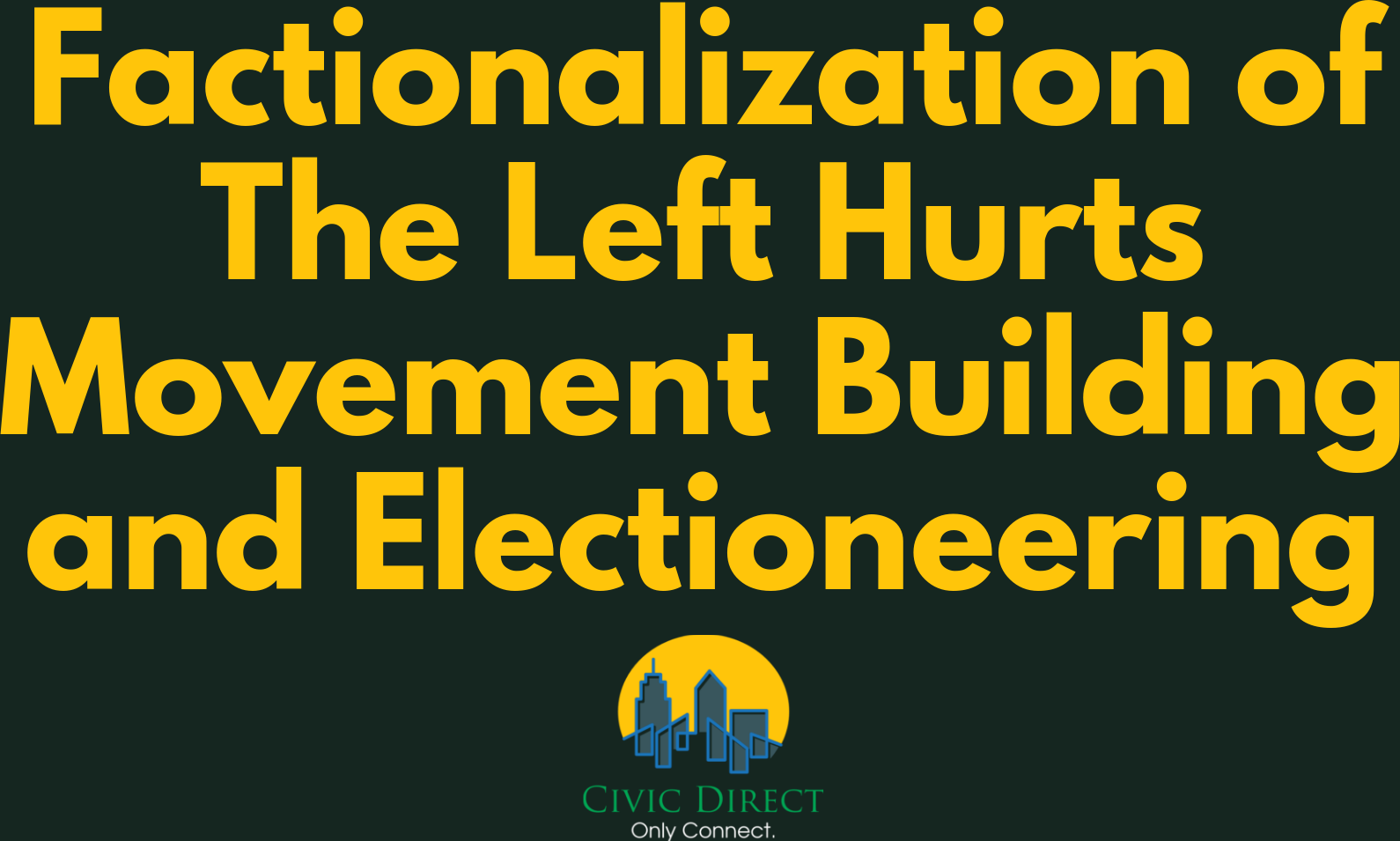The internecine conflict within progressive and lefty social movements is nothing new. Ideological infighting and political jockeying has always been a feature of movements and campaigns. In many ways, such rivalry casting is part of the human condition, but perhaps is more acutely experienced amongst those with a strongly committed to either an ideological position or to a particular political personality. Indeed, as we noted in Tribal Political Discourse Part 1 the most strident debates often happen within an ideological or religious faction as opposed to between factions. The Left is not immune from this phenomenon.
The Left Saves Their Sharpest Knives for Themselves
If you have been part of progressive movement building or political organizing, you likely have witnessed this factionalization, if not participated in it. In the middle of such moments, I often observe that the left saves its sharpest knives for themselves. Despite the overwhelming odds against making last progressive change against monied and powerful interests, despite all the evils that are confronted, the toughest battles often are within progressive movements. Often these conflicts can be beneficial in eliminating blind spots on such issues as institutional oppression where the organization or movement may be mimicking the very practices and behavior that we are seeking to defeat. In other cases though, the stridency of the conflict and the personalization of the attacks can lead to weaker movements, networks and organizations and even bring to an unfortunate end that which is necessary in the world.
When we lose perspective and turn on each other, we forget what's at stake in making sure we have a seat at the table to enact progressive policy change.
As we struggle with the tensions and conflicts, we should be asking ourselves, do we have processes and norms that facilitate productive conflict? How do we hold ourselves accountable? When we slip into unproductive conflict, how do right the ship and set our sights to win-win problem solving? How do we keep perspective that the biggest issues we face are out there as opposed to within our network or organization?
The Forms of Conflict
Often these conflicts take on a few typical forms:
- Purists vs. pragmatists - Ideological purity is often a natural outgrowth of feeling passionately about an issue or a framework. Converts to a way of thinking passionately advocate for a set of positions based on this ideology. There is often a degree of absolutism that finds itself in conflict with those who fancy themselves as pragmatists willing to compromise and cede ground. When to make a more political compromise and when to stand your ground on principle even if you will lose are the types of conversations that can be helpful to have. However, to what degree the movement cedes ground or makes compromise is often the basis for faction formation. Such divisions can stop movement building and coalitions in their tracks.
- Decision making, power, and authority can be nebulous in movements and coalitions that are more ad hoc by their nature. Well-established organizations can also have these types of disagreements between boards, staff, and other constituencies, Often the community connectedness versus some other power center is the root of the conflict. Those who find processes for decision making that are viewed as trusted by all parties (often because they are representative or democratic) can channel conflict productively. Opaque decision making processes can lead to power struggles that can bring down movements through infighting or decision-making that grinds to a halt in an outside world that often requires rapid decision making about rapidly changing circumstances.
- Old Guard vs. New Energy - New energy is often welcome in progressive movements or within organizations until the demands for change come. New ways of thinking can challenge norms and traditions, even those norms which are broadly perceived to be functioning well. The maintainers of tradition and continuity find themselves holding onto what they know and using established relationships to hold onto the power and authority that often comes with those traditions. Generating a balance between the old and the new can take movements, organizations and networks to incredibly power places. Over-valuing one at the expense of the other can lead to stagnation if too much old and a lack of wisdom if the baby is thrown out with the bath water.
Let's Start with the Presidential Campaign
The Presidential campaign is in full swing, unfortunately earlier this cycle than ever. We should recognize these conflicts when we see them. I'm already seeing social media spats amongst the fans of various candidates. To be sure, a primary is a vetting process that should allow for tough questioning and debating amongst the candidates and their supporters. However, many of these conflicts are folks already dug into a set of positions often along purity-pragmatism and new energy/old guard conflict spectrums. Let's undig ourselves and look at the 2020 Presidential campaign with a fresh set of eyes. Let's value and respect what so many good candidates are bringing to the table. Let's be clear where there is disagreement on policy and why. And let's not get so caught up in the internecine primary battles that we take our eyes off the fundamental need to defeat a President who has ushered in one of the most tragic political epochs in American history.
#Politics #progressive #democrats #primary #president #progressives #movementbuilding #tribalism

